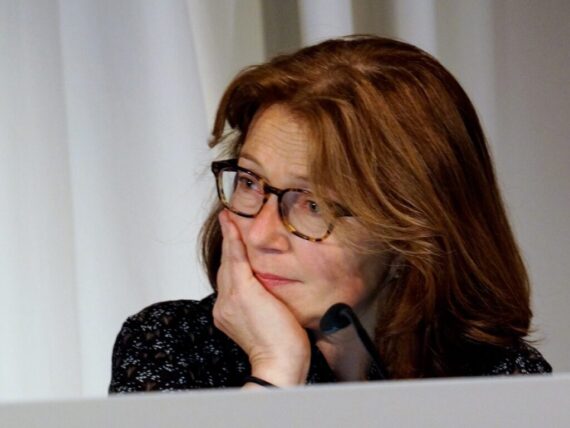For the longest time, I thought that Marx and Engels were basically right. It seemed to me that our history was that of a constant struggle between a dominant class and a dominated class. The feminist, gay, queer, and trans* revolutions, Black Studies in the US, abolitionism – all these social and intellectual movements transformed the idea of class struggles. But I always managed to fit them roughly into a certain binary, between the dominant and the dominated, between the unjust and the just. Whether it was historically dominated women versus dominant men, or African-Americans versus Whites; whether it was historically dominated queer people versus historically dominant straight people, and so on. I was always in the grip of a certain binary class struggle between dominant and dominated. Today, I am no longer convinced… [keep reading here]
Reading Monique Wittig and Transgender Marxism underscores that Marx’s writings, standing alone, do not properly address sex and gender. For this reason, it is essential that we read Marx through the lens of Wittig’s version of feminist materialism and an abolitionist version of transgender Marxism. Ultimately, if one embraces Marx’s abolitionist position with regard to private property, capital, and class, the resulting vision of society, of solidarity, and of cooperation requires the end of any forms of dominance associated with the category of sex. The abolition of class distinctions calls for the abolition of gender distinctions that create relations of domination. In effect, maintaining the idea of sexual difference undermines the possibility of a genuinely classless society. [Continue reading here…]
Many commentators posit a stark conflict between Marx and Lacan—or, more generally, between Marx and post-structuralist thinkers. But Lacan’s discussion of desire and alienation might be useful for a reading of Marx. It may serve to enrich the questions of desire and alienation that infuse Marx’s discussion in the Paris Manuscripts, rather than undermine them. [To read more, continue here…]
Karl Marx, in the *Economic and Philosophical Manuscripts of 1844*, talks a lot about how the goal of the capitalist economic system is the “unhappiness of society.” In his book *Not Working*, British psychoanalyst Josh Cohen points out that he nowadays encounters more and more patients who want the world or themselves to stop. Some patients talk about the bliss of catatonic exhaustion, the festive morning of the weekend, staring at a single line of a newspaper until it acquires a complete emptiness of the Buddhist mantra. Lacanian notions of desire in jouissance become handy in understanding this logic. As Lacan explained in his analysis of Freud’s theory of dreams, neurotic subjects often find a particular satisfaction in keeping their desires unsatisfied. [Read more here…]
Anti-utopian and resolutely historical, Claude Lefort’s thought invites us to abandon all practical prescription, all direction, all programmatic formulation, in order to confront the present of politics in all its complexity, and to imagine from it new openings. [Continue reading here…]
Many years ago, I wrote a book on Marx and endorsed the Lefortian analysis that rejected the reduction of civil to “bourgeois” society, embraced the emancipatory potentials unleashed in both civil society and the formally (if insufficiently) democratic state. Two developments since then call for more thinking on these topics. [Read more here…]
In February 1844, Marx published two articles in the Deutsch-französische Jahrbücher: “A Contribution to the Critique of Hegel’s Philosophy of Right: Introduction” and “On the Jewish Question.” Together, these two articles push Marx, beyond the legal remedies that he had proposed in his 1842 articles on the thefts of wood, to call for revolution in Germany and human emancipation. This introduction begins to place these works in conversation with the writings of the French political philosopher Claude Lefort in preparation for our seminar with Professor Jean Louise Cohen of Columbia University. [Continue reading here…]
Foucault, alter-marxist? Return to the question of illegalisms: Law, history, and subjectivation Judith Revel Université Paris 1 Panthéon-Sorbonne [NB: The original text in French is below, following this English translation] First and foremost, of course, I’d like to thank Bernard Harcourt for organizing this great seminar series – I was thinking this morning that I have taken part in five CCCCT seminars since 2016. This year is my sixth, and I’m delighted and proud of it, thank you. I can’t begin, however, without apologizing a little for my presence in this context: I’m not a Marx specialist, and what justifies […]








